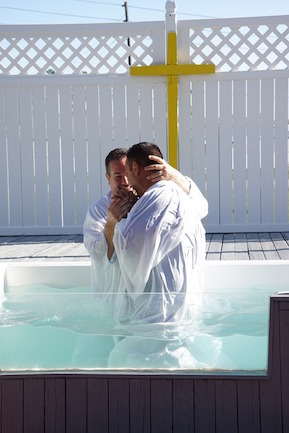What, Me Homeschool? Here’s Why You Should Consider Homeschooling Your Children by Linnea Johnson for The Organic Prepper
Should you consider homeschooling?
Have you ever asked yourself what might possess someone to homeschool instead of getting a free education in the public schools? Have you, friends, or family members had less than desirable experiences in schools, whether public or private? Have you known children who were different, perhaps had learning differences, or were bullied by other children or in my personal experience, even by the teacher, and did not thrive in a classroom situation?
Here are some things to think about.
Support Our Site

Now is your chance to support Gospel News Network.
We love helping others and believe that’s one of the reasons we are chosen as Ambassadors of the Kingdom, to serve God’s children. We look to the Greatest Commandment as our Powering force.
Does the classroom actually prepare kids for real life?
We spend the rest of our lives after we complete our schooling interacting with people of all ages, ethnicities, worldviews, abilities, and income levels. Why would we expect children, who are kept almost all their days in classrooms of children and teens the same age, probably a similar income level, and with similar curriculum to be able to function effectively and happily in a world of such diversity?
Related: A Homeschooling Guide for Public Schoolers
Children are still figuring out who they are, what they believe about the world, and whom they can trust. If a child is in the majority of a group, they will probably do just fine, but if they are different in some way, perhaps a more critical or deeper thinker, or one who needs more hands-on learning, or one who looks different, or one who comes from a different culture, or one who has different abilities, they will suffer cognitive dissonanceat a young age and will be expected to respond as the majority responds.
Is cognitive dissonance bad? Not always. That’s how we learn new things, but sometimes kids need support to help them bridge the two ideas or to decide if the new idea is one they can accept.
In the field of psychology, cognitive dissonance is the mental discomfort (psychological stress) experienced by a person who simultaneously holds two or more contradictory beliefs, ideas, or values. The occurrence of cognitive dissonance is a consequence of a person’s performing an action that contradicts personal beliefs, ideals, and values; and also occurs when confronted with new information that contradicts said beliefs, ideals, and values. (Source)
Children are quick to “fix” other children who are different, calling them stupid, or ugly, or “not cool”, or clumsy, or _______… you fill in the blank. You’re likely to harken back to your own experiences of this example of socialization, or more aptly, ensuring everyone thinks, looks, talks, and even believes the same way.
Is this what we want from a society that desperately needs creative thinking and different solutions to solve the complex problems we face? Shouldn’t there be some freedom to think differently without being beaten down?
What are your beliefs?
Whether you believe freedom of thought is important or whether you believe your child’s natural abilities and gifts should be encouraged and nurtured, or whether you believe that the worldviewof the majority is inconsistent with what you want your child to learn, there are a plethora of reasons to consider homeschooling. In our family, we had a number of reasons.
One son had some learning differences and experienced bullying, another needed more hands-on learning than could be reasonably provided in a large classroom. We ran the gamut between public, private, and homeschool, and experienced the pros and cons of each. Heck, I even went on to get a masters degree in curriculum and instruction and started a PhD, became a licensed secondary education teacher, and in the course of my work experience taught everything from preschool music to English as a 2ndlanguage, to high school technology, business, and personal finance to adult education.




